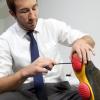There has been outcry today at the news that patients who require a hip replacement will only be operated on by the NHS IF they are in so much pain they cannot sleep or carry out day to day tasks.
The plans by three Clinical Commissioning Groups to slash the number of people who qualify for hip and knee replacements have come under fire. The aim of these proposals is to save up to £2m a year.
Hip surgery denied
Surgery would only be performed if patients were unable to sleep through the night because of the pain, or live a normal life. Those who are classified as obese would be denied an operation, until they managed to lose the excess weight.
According to Stephen Cannon, Vice-President of the Royal College of Surgeons, the proposals to ration these operations are irresponsible. He argues such a course of action will lead to patients suffering unnecessarily.
“The CCGs’ policy decision to restrict access to NHS care, based on arbitrary pain and disability thresholds, is alarming,” he comments. “It is another example of how the huge financial strains the NHS is currently under are directly affecting patients. It is right to look at alternatives to surgery but this decision should be based on surgical assessment, not financial pressures.”
Mr Cannon went on to add:
“Although the CCGs claim this will save them £2million a year, this overlooks the longer-term impact on patients of delayed treatment, prolonged pain, and potentially higher costs of treatment. For example, patients affected by these changes may require additional pain relief medication, and may still require surgery further down the line, which may be more complex.”
Steroid injections for lateral hip pain
Politics and budgeting aside, for patients who are suffering from pain, managing to cope from day to day will be a prime concern.
Those who are enduring hip and knee pain, and are unable to get an operation should ask their doctor about the possibility of other ways of coping, such as steroid injections.
Although Arthritis Research UK point out that many surgeons prefer patients to avoid injections prior to an operation as it may lower the ‘resistance’ of the joint to bacteria, steroid injections can be a very useful solution.
According to Miss Stephanie Kaye-Barrett, Consultant Rheumatologist of 25 Harley Street Day Clinic, for certain problems with hip pain, injections may be the right course of action.
She says: “Lateral hip pain, which is often misdiagnosed as osteoarthritis, may be due to a number of problems. One of the most common is trochanteric bursitis. This gives pain that mimics sciatica and osteoarthritis of the hip. People often visit an orthopaedic surgeon first and are discharged if the diagnosis of osteoarthritis is not present to substantial degree. However people are still left with the pain! On careful examination, the diagnosis of trochanteric bursitis can be made by a consultant rheumatologist.
Corticosteroid and lignocaine injection
Dr Kaye-Barrett adds: “The problem may be solved by a corticosteroid and lignocaine injection.”
If you’re scared of injections, don’t fret. As long as they are carried out by a medical professional you should have no need to worry . ”Joint injections are carried out everyday within surgeries or consultants' rooms,” says Dr Kaye-Barrett. “Following the injection you should feel immediate relief from the local anaesthetic, lignocaine. The corticosteroid gradually ‘kicks in’, and you will feel minimal or no pain.”
Talk to your doctor about whether a referral for a steroid injection could be right treatment for your hip or knee pain.










